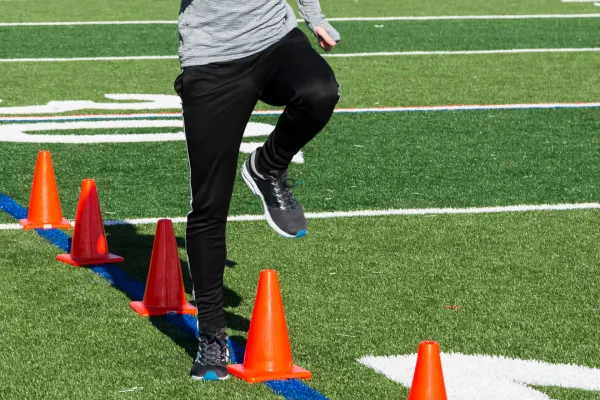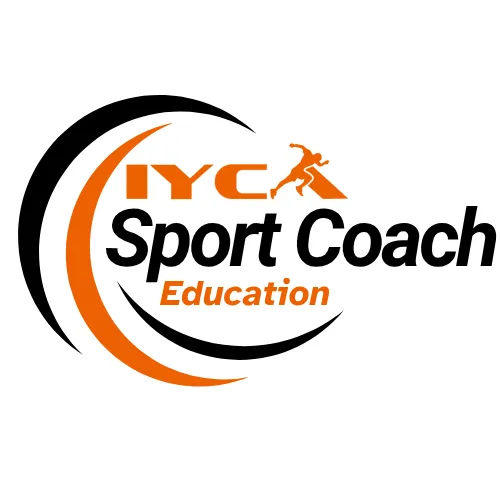
Navigating Banned Substances in Sports and Supplement Safety: A Guide for Coaches and Athletes
In the fast-paced world of competitive sports, where performance enhancement is often the key to success, athletes are constantly seeking ways to gain an edge. But what happens when the search for a competitive advantage leads them into dangerous territory — specifically, the world of banned substances? While supplements can offer legitimate benefits, the risk of contamination or unintentional use of prohibited substances can have severe consequences for an athlete’s career and health.
In this blog post, we’ll take a closer look at the challenges athletes face when it comes to banned substances, the importance of supplement safety, and how to navigate this complex landscape to ensure both performance and integrity.
Understanding Banned Substances in Sports
Banned substances refer to any drugs, chemicals, or compounds that are prohibited by regulatory organizations, such as the World Anti-Doping Agency (WADA), due to their potential to provide athletes with an unfair advantage. These substances are typically classified into various categories based on their effects, which include:
Anabolic Steroids: These are synthetic variations of the male sex hormone testosterone, used to increase muscle mass and improve strength. Examples include substances like testosterone and its analogs.
Stimulants: Drugs like amphetamines, caffeine (in high doses), and ephedrine are stimulants that increase alertness and decrease fatigue, often giving athletes an energy boost during competition.
Blood Doping Agents: These include erythropoietin (EPO) and other substances that enhance oxygen delivery to muscles, improving endurance.
Diuretics and Masking Agents: These substances are used to flush out banned drugs from the body or to mask the presence of other substances.
Growth Hormones: Human Growth Hormone (HGH) is used to enhance muscle development and recovery. However, it can lead to a range of side effects and is banned in most professional sports.
Understanding these categories is crucial for any athlete, but even more so for those who rely on supplements to fuel their training and recovery. The blurred line between what’s “safe” and what’s “illegal” often leads to inadvertent violations.
The Role of Supplements: Are They Safe?
The global supplement industry is vast and growing. Sports nutrition products such as protein powders, amino acids, pre-workout formulas, and fat burners are marketed to athletes at all levels. While many of these products are perfectly safe and effective when used correctly, there’s a dark side to the industry. Some supplements are contaminated with substances that are banned by organizations like WADA.
Why does this happen?
Lack of Regulation: Unlike pharmaceuticals, dietary supplements are not strictly regulated by agencies like the FDA in the United States. Manufacturers are not required to provide evidence of safety or efficacy before bringing products to market.
Cross-Contamination: In the manufacturing process, supplements may be contaminated with banned substances that were used in other products at the same facility.
Unlisted Ingredients: Some manufacturers intentionally add banned substances to their products to boost performance claims. These "spiked" supplements can be especially dangerous since the athlete may not be aware of their inclusion.
Ingredient Sourcing: Ingredients sourced from overseas or unregulated suppliers can sometimes be adulterated, increasing the risk of contamination.
The Dangers of Unintentional Doping
Many athletes have been suspended or banned for testing positive for substances they didn’t intentionally take. In 2015, US sprinter Tori Bowie was disqualified after unknowingly consuming a contaminated supplement that contained a stimulant banned by the NCAA.
The consequences of a doping violation are severe, ranging from temporary suspensions to lifetime bans. In addition to the professional ramifications, there can also be lasting reputational damage and significant mental health tolls. Athletes may also face legal ramifications, including fines or lawsuits.
How to Protect Yourself: Ensuring Supplement Safety
To avoid the potential pitfalls of banned substances in sports, athletes need to be proactive and take measures to safeguard their careers and health. Here are some strategies to navigate the complex world of supplements and banned substances:
1. Choose Certified, Third-Party Tested Products
Look for supplements that have been independently tested and certified by organizations such as NSF Certified for Sport or Informed-Sport. These certifications ensure that the product has been tested for banned substances and contaminants, providing an added layer of protection.
2. Research Ingredients Thoroughly
Before taking any supplement, it’s essential to research the ingredients and their status on the banned substance list. The WADA website and the US Anti-Doping Agency (USADA) provide resources and lists of banned substances. Many athletes use apps such as the Global DRO (Drug Reference Online) to check the status of individual ingredients in real time.
3. Work with a Sports Dietitian or Nutritionist
Consulting with a qualified sports nutritionist can help you make safe and informed choices when it comes to supplements. These experts can guide you through safe supplementation practices, helping you avoid risky products and ensuring that your nutrition plan supports both your health and performance goals.
4. Stick to Whole Foods and Natural Supplements
While supplements can be beneficial, they shouldn’t replace a well-balanced, nutrient-rich diet. Whenever possible, prioritize whole foods to meet your nutrition needs. If you do choose to take supplements, focus on natural options like protein powder (with no additives) or creatine monohydrate that can enhance performance without risking contamination.
5. Stay Informed on Anti-Doping Regulations
Doping regulations can evolve, and keeping up with changes in anti-doping policies is crucial for any athlete. WADA, USADA, and other anti-doping organizations provide regular updates, education, and resources to help athletes stay compliant. Staying informed can help you avoid accidental violations and ensure you are following best practices.
The Bottom Line: Knowledge is Power
Navigating the world of banned substances and supplement safety is a delicate balancing act. On one hand, athletes need to optimize their training and performance, but on the other hand, they must avoid the serious risks posed by illicit drugs, untested supplements, and contaminants.
By choosing reputable supplements, educating yourself on banned substances, and seeking expert advice, you can minimize the risks while continuing to pursue your athletic goals safely and ethically. It’s not just about avoiding banned substances — it’s about promoting long-term health, success, and integrity in your sporting journey.
About the Author:
Kristy Stevenson, MEd, RDN
Kristy is a Registered Dietitian Nutritionist with her Masters Degree in Education. She owns her own nutrition consulting business called Performance Nutrition LLC and teaches as an Adjunct Instructor at Lansing Community College.
Kristy focuses on sports nutrition, healthy eating, and weight management, and is a speaker/lecturer. To learn more about Kristy, visit her website at www.performancenutritionllc.com.
To learn more about sports nutrition, take Kristy’s online course The Fundamentals of Sports Nutrition at https://www.performancenutritionllc.com/products and use IYCA20 for a 20% discount.
The information provided in this article is for educational purposes only and is not intended as medical or nutritional advice. Individual hydration and electrolyte needs vary based on factors such as age, activity level, environment, and overall health. Athletes should consult with a registered dietitian, sports nutritionist, or healthcare professional for personalized recommendations. The IYCA and the author are not responsible for any adverse effects resulting from the application of the information presented.








